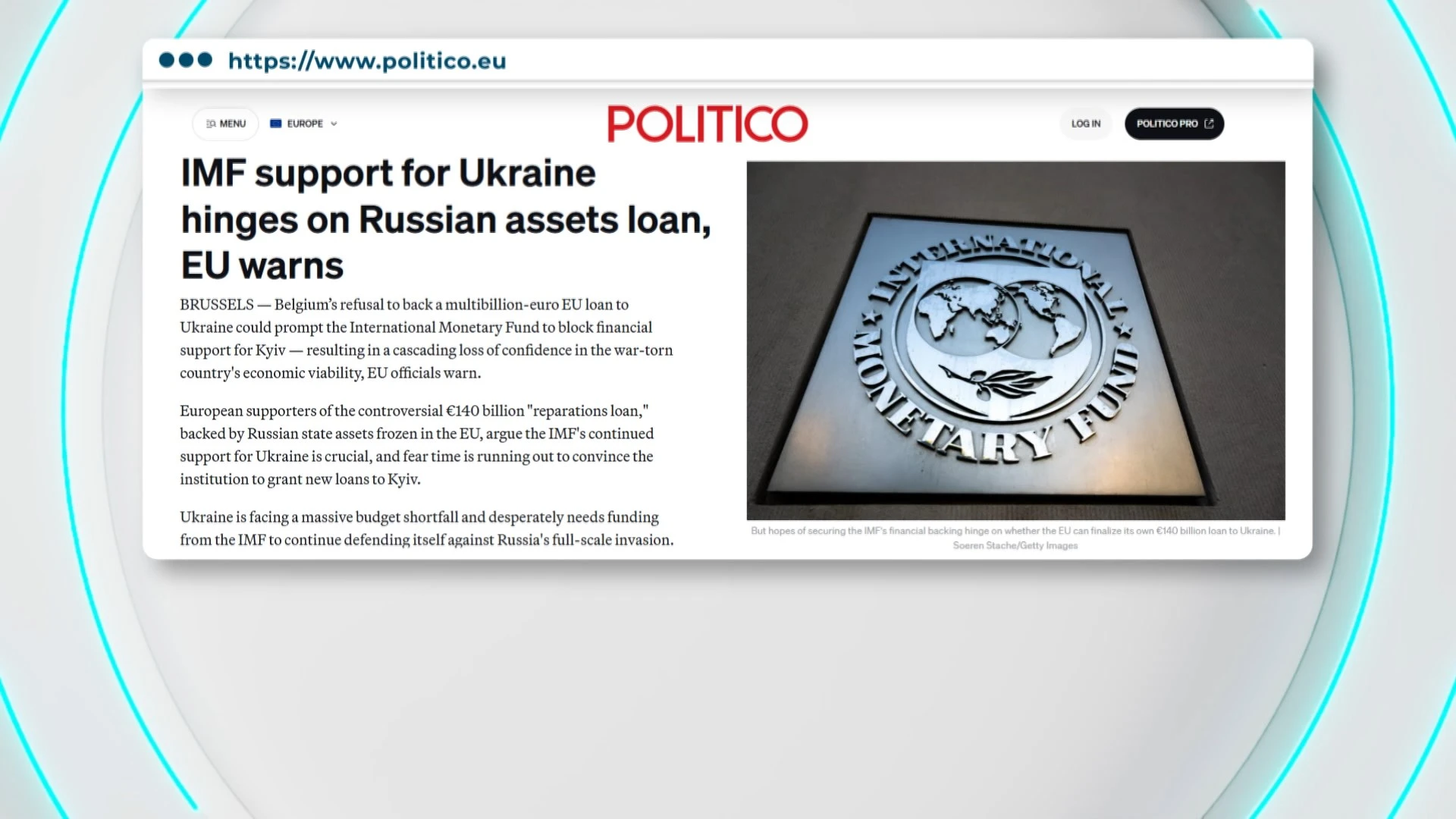3.68 BYN
2.98 BYN
3.42 BYN
IMF Concerns about Possible Consequences of Confiscating Russia's Frozen Assets
Text by:Editorial office news.by
news.byhttps://s3-minsk.becloud.by/media-assets/news-by/3b03de93-398c-49ef-9244-bd23e577f877/conversions/29b1b772-99d8-4170-9962-911a389273a6-sm-___webp_480.webp 480w, https://s3-minsk.becloud.by/media-assets/news-by/3b03de93-398c-49ef-9244-bd23e577f877/conversions/29b1b772-99d8-4170-9962-911a389273a6-md-___webp_768.webp 768w, https://s3-minsk.becloud.by/media-assets/news-by/3b03de93-398c-49ef-9244-bd23e577f877/conversions/29b1b772-99d8-4170-9962-911a389273a6-lg-___webp_1280.webp 1280w, https://s3-minsk.becloud.by/media-assets/news-by/3b03de93-398c-49ef-9244-bd23e577f877/conversions/29b1b772-99d8-4170-9962-911a389273a6-xl-___webp_1920.webp 1920w

If Russian assets are confiscated and transferred to Kiev, Ukraine will almost certainly lose IMF support, Politico reports.
This is because such a violation of the sanctity of private property violates the fundamental principles underlying the International Monetary Fund. While the organization is controlled by Americans and Europeans, the funds it allocates are collected from dozens of countries around the world.
The confiscation of Russian assets will become a red flag for the countries of the third world. This alarm will likely paralyze the IMF's activities, at least in Ukraine.















